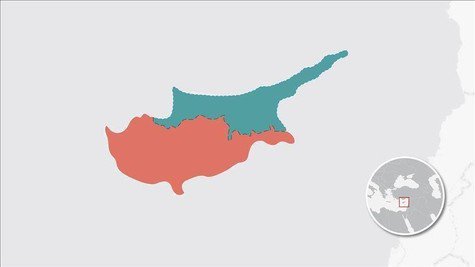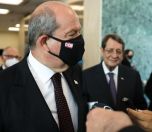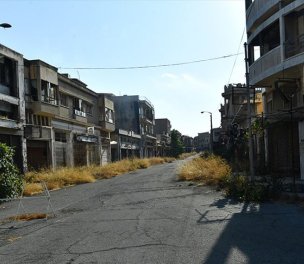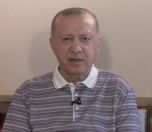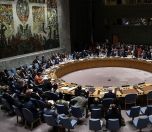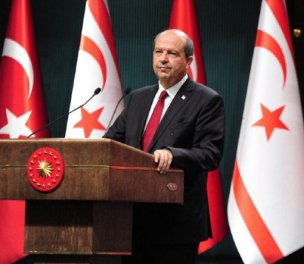* Photo: Cem Özdel / AA
Click to read the article in Turkish
The United Nations Security Council (UNSC) has extended the mandate of the UN Peacekeeping Force in the Island of Cyprus (UNFICYP) for six months with a resolution adopted on January 27, 2022.
The Foreign Ministry of Turkey has released a written statement about the issue shortly afterwards, saying, "We fully support the statement of the Ministry of Foreign Affairs of the Turkish Republic of Northern Cyprus (TRNC) concerning the resolution."
The Ministry has briefly stated the following:
'Disconnected from reality and contradictory'
"Despite all calls and warnings, the consent of the TRNC authorities was not sought once again, contrary to the UN rules and principles.
"While a legal arrangement has been persistently avoided, however UNFICYP could continue its activities on the Island within the framework of bona fide approach of the TRNC authorities. The steps of the TRNC to be taken in this regard have our full support.
"It is disconnected from reality and also contradictory on the side of the UN Security Council, on one side calling on the parties on the Island to reach a settlement, and on the other side, trying to impose a settlement model that has been tried and exhausted for more than fifty years, proven ineffective and does not reflect the consent of one side.
'An example of double standards'
"On the other hand, the UN Security Council's criticism of the steps taken by the TRNC authorities in Maraş [Varosha, Famagusta] in accordance with international law is a violation of property rights.
"Furthermore, the Council's disregard of the unilateral steps taken by the Greek Cypriot Administration in the Eastern Mediterranean, which are increasing the tension and ignoring the rights of the Turkish Cypriots, is again an example of double standard.
"With a view to achieving a just and lasting solution, we call on the Security Council and the international community to adopt a sincere and constructive attitude based on the realities of the Island, and, to this end, to reaffirm the sovereign equality and equal international status of the Turkish Cypriot people."
Briefly about the Cyprus dispute
In the Republic of Cyprus, which was founded in 1960, both communities had the right of representation in all institutions (70 percent for Greeks and 30 percent for Turks). Cyprus has been divided since 1974. Two-thirds of the island is governed by Greek Cypriots. It is internationally recognized as the Republic of Cyprus and it is a member of the European Union (EU). As for the northern part of the island, which is called the Turkish Republic of Northern Cyprus (TRNC) by Turkish Cypriots, it is a country with a population of 300,000 and is only recognized by Turkey. The status of VaroshaVarosha, or Maraş in Turkish, is a coastal town in Cyprus' Famagusta. Following Turkey's "Second Cyprus Peace Operation" in the 1974 war that eventually divided the island, the town was closed to settlement as it was on the "green line" between the "Turkish Republic of Northern Cyprus" and the "Republic of Cyprus." Passed by the UNSC in 1983, Resolution 550 stated, "... Deeply concerned about recent threats for settlement of Varosha by people other than its inhabitants, reaffirming its continuing support for the United Nations Peace-keeping Force in Cyprus..." Formerly a major tourist attraction with its beaches and hotels, Varosha has turned into a "ghost town" since then. However, the issue came to the fore once again before the 2015 presidential elections when President Mustafa Akıncı said, "Instead of living side by side with a corpse, Maraş should become a lively place where people live, earn an income, contractors from both sides do business, their young people find jobs." On June 18, 2019, the Council of Ministers of Northern Cyprus announced the decision that it would reopen Varosha and assign a team of experts to do scientific inventory studies. On October 6, 2020, then Northern Cyprus presidential candidate Ersin Tatar announced the reopening of Varosha during a joint press conference with Turkey's President and ruling AKP Chair Recep Tayyip Erdoğan in Cyprus. |
(EMK/SD)





